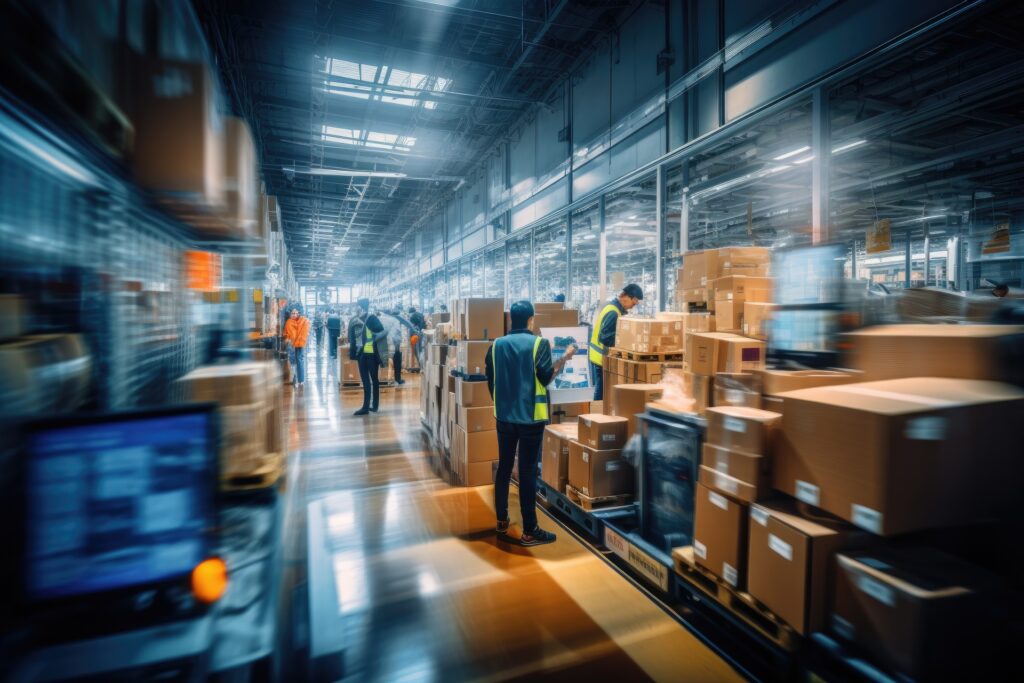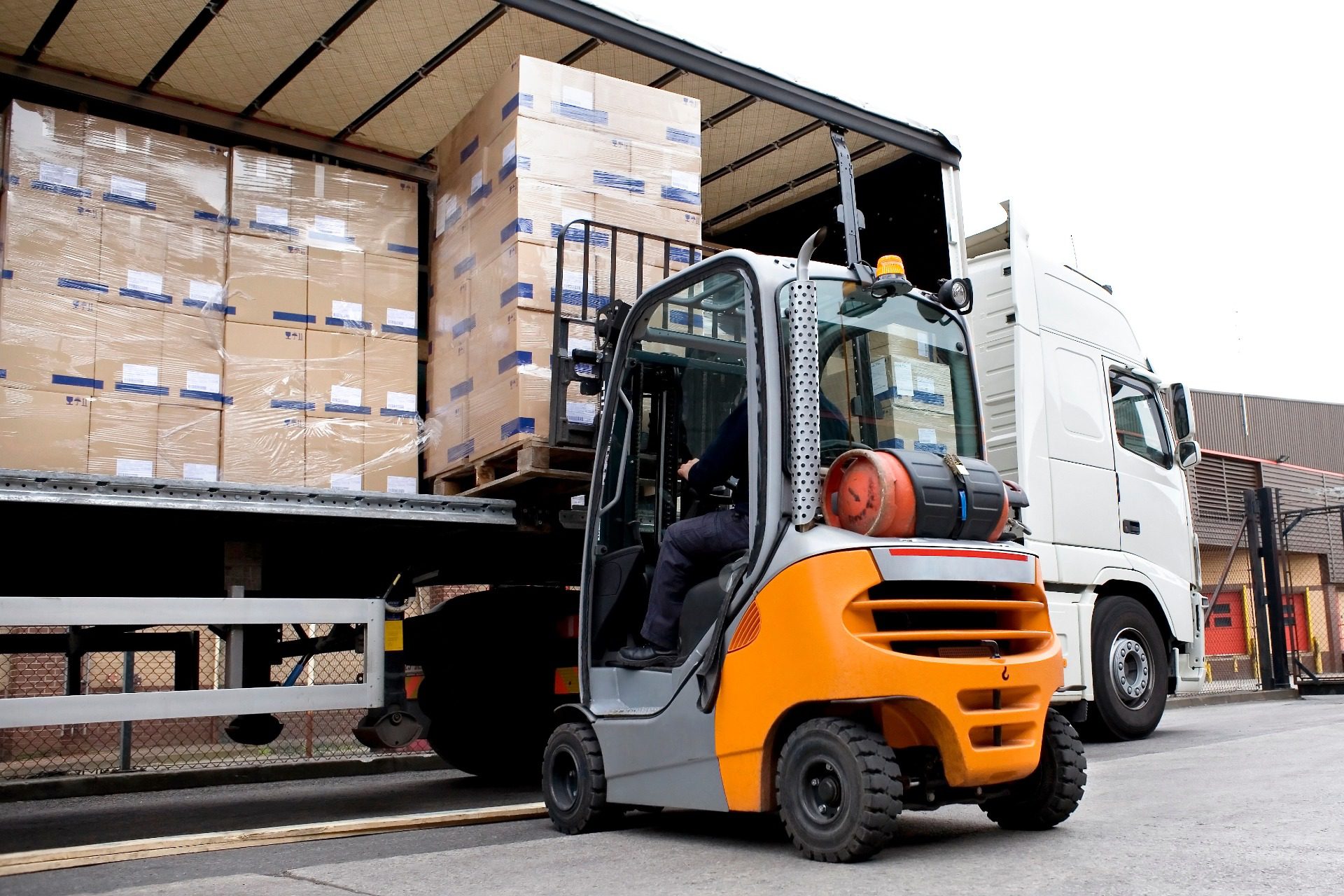There’s no arguing that the nature of commerce has been revolutionized by advancements in technology and transportation. Aspects of commerce such as wholesale distribution, fulfillment, logistics, and retailer drop-shipping have all benefited from recent improvements in the sector. Understanding the intricacies of these crucial components of the supply chain is paramount for businesses aiming to grow and thrive. This definitive guide delves into the core of these principle facets of commerce, offering insights into how businesses can efficiently manage inventory, streamline their distribution processes, and effectively collaborate with retailers for drop-shipping. Read on to learn how ShipCalm can help you optimize your supply chain operations to increase efficiency and boost customer satisfaction in an increasingly competitive market.
Retail Fulfillment
We work with top retailers like Amazon, Walmart, Macy’s, Nordstroms, Target, and much more to support them in getting a brands inventory in the right place at the right time so that they can sell a brands products to the retailers customer. We’ve developed a robust set of capabilities to streamline the supply chain so that we can help with:
- Small business retailers (Mom & Pop Local Stores)
- Online eCommerce websites (Amazon, Zulilly, Faire)
- Major retail chains (Target, Walmat Home Depot, Lowes)
At the end of the day these retailers have a variety of different ways, business models and supply-chain designs that are our team can support to make their specific retail fulfillment method of choice a success.
What is Retail Fulfillment
Retail fulfillment is the process of fulfilling customer orders for products through a retail channel, such as a brick-and-mortar store or an online store. This process involves either handing orders over in person or receiving orders, picking and packing products, and shipping them to customers.
Retail fulfillment is a critical component of the retail supply chain, as it directly impacts customer satisfaction and can make or break a retailer’s reputation. Effective retail fulfillment requires efficient logistics and inventory management, as well as timely and accurate order processing. Many retailers opt to outsource their fulfillment operations to third-party providers, who can offer specialized expertise, advanced technology, and economies of scale.
At the end of the day there are only 3 retail fulfillment mechanisms, but a variety of different supply chain models to support them:
- Buy In-Store
- Buy Online, Pickup In-Store
- Buy In-Store, Ship to home
- Buy Online, Ship to home
The Retail Fulfillment Supply Chain
The retail fulfillment supply chain is concerned with getting products into a location where they can easily be fulfilled when a retailers customer orders that product. This means that at the end of the day the supply chain has to get the products into either one of two place.
A retail store to support:
- Buy In-Store
- Buy Online, Pickup In-Store
A fulfillment center to support:
- Buy In-Store, Ship to home
- Buy Online, Ship to home
Wholesale Distribution
At ShipCalm, we’ve figured out how to streamline and optimize wholesale distribution methods so that your products are transported as efficiently and cost-effectively as possible. We help coordinate orders through Big Box Retail Distribution Centers, account for vendor compliances, and organize shipments of products for less-than-truckloads (LTL) and full-truckload (FTL) deliveries. With our state-of-the-art technological capabilities, we also offer deep EDI support and integration.
What is Wholesale Distribution?
Wholesale distribution, also known as wholesale logistics, refers to the process where goods are purchased in large quantities from producers or manufacturers and then sold in smaller amounts to retailers or other businesses. This intermediary step in the supply chain is crucial for aggregating, storing, and distributing a wide range of products to various retail outlets and businesses. Effective wholesale distribution capabilities are pivotal for businesses looking to expand their consumer reach.
Wholesale Logistics Supply Chain
Wholesale logistics takes into account the various routes a product can travel from supplier to consumer. At ShipCalm, our goal is to optimize these routes so that your customers receive their products as quickly as possible and for the lowest possible price on your end.
Wholesale Logistics
Generally speaking, the wholesale logistics process accounts for a product’s journey along one of the following two avenues:
- Manufacturer → ShipCalm → Retailer DC → Retail Stores → Customer Buys In Store
- Manufacturer → ShipCalm → Retailer Fulfillment Center → Ships to Customer
In the first avenue, the manufacturer sends products to one of ShipCalm’s warehouse sites, where the products are efficiently offloaded and sorted for timely delivery to a retailer wholesale distribution center. From there, products are delivered directly to retail stores where they become available for purchase by consumers.
In the second avenue, products follow a similar path, however instead of being delivered to a retailer distribution center, they are sent to a retailer fulfillment center, where online orders are processed so that products can be shipped directly to consumers’ homes.
Throughout both of these logistical processes, ShipCalm works to decrease the amount of storage time your products spend sitting in warehouses. This helps to decrease your logistical costs and streamline product transportation so that consumers receive their goods both quickly and cost-effectively. Additionally, ShipCalm makes efforts to group products that need transportation to similar locations so that transportation costs are minimized throughout the process. Coordinating practical and profitable transportation can be difficult, so we aim to take the headache out of the logistical side of your daily operations.
Retail Replenishment
ShipCalm can help optimize your retail replenishment abilities. Certain retailers require product suppliers to handle distribution and replenishment, so if your business has retail replenishment capabilities, you can increase the number of stores your product is shelved in. This, in turn, can equate to higher sales and bigger profits.
What is Retail Replenishment
Retail replenishment, also referred to as cross-docking, store replenishment, or replenishment in retail, is the process of restocking products in a retail store to maintain an optimal inventory level that meets customer demand without overstocking. This process involves careful analysis of sales data, inventory management, and timely ordering from suppliers to ensure that popular items are always available for purchase. ShipCalm’s advanced analytical methods aim to help your business tackle fluctuating demands so that your warehousing and distribution costs are minimized. Additionally, with our cross-docking capabilities, ShipCalm works to streamline your product’s journey from manufacturer to retailer.
Retail Replenishment Supply Chain
The retail replenishment supply chain is concerned with how your products are actively accounted for in stores and prepped for delivery upon depletion of available stock. Ideally, your products are always in stock and are not taking up an excessive amount of in-store storage space, as this can come with pricey fees. If your product comes in a variety of types or sizes, ShipCalm can work with manufacturers to develop pre-packs that ensure all variations of your product are adequately stocked.
Retail Replenishment
With ShipCalm, the steps of retail replenishment within your supply chain are as follows:
- Manufacturer → ShipCalm → Retail Stores -> Customer Buys In Store
In this process, the manufacturer is first alerted that a specific number of products are needed for restocking within retailer locations. This amount is then shipped to a ShipCalm fulfillment center, where cross-docking occurs. Cross-docking involves products being offloaded on one end of the center, efficiently and quickly sorted, then re-loaded immediately onto outbound transportation trucks for delivery to retail stores. This process helps to cut down on product storage times, as well as speed up the entire retail replenishment procedure. Once products are restocked in retail stores, customers are able to purchase them again.
ShipCalm aims to effectively reorder products for you so that they are always available in stores without taking up an excess amount of storage space. Through predictive analytics and streamlined transportation operations, we make sure that your products are a mainstay on shelves in every store where they can be purchased.
What is Retail Dropshipping
Retail dropshipping is when an order is placed online or in-store at a retailer and the retailer relies on the brand to actually do the end customer shipment. Often time this means that the brands fulfillment center needs to support certain things like custom packing slips so that the shipment looks like it came directly from the retailers warehouse.
Retail Dropshipping Supply-chain
The retail dropshipping supply chain focuses on the direct delivery of products to customers from a supplier or manufacturer, bypassing traditional store stocking. This model thrives on efficiency and minimal handling, using technology like EDI to ensure that products are shipped as soon as an order is placed.
The drop ship fulfillment services offered by ShipCalm follow the following paths:
- Manufacturer → ShipCalm
- Retail Store (Takes Order Online) → ShipCalm Ships To Customer
Key aspects of the retail dropshipping supply chain
Streamlined Inventory Management: Products aren’t physically stored by the retailer, reducing the need for in-store or warehouse space. This setup minimizes costs associated with storage and inventory management.
Rapid Order Fulfillment: Upon customer order, details are immediately relayed to the supplier, who then takes charge of shipping directly to the customer. This process reduces delivery times, enhancing customer satisfaction.
EDI in Action: Electronic Data Interchange (EDI) plays a subtle yet crucial role by automating order processing and communication between the retailer and supplier, ensuring accuracy and efficiency in the supply chain.
Retail drop-shipping, with the support of technology solutions provided by ShipCalm, is about leveraging supplier relationships to offer a wider range of products without the constraints of physical inventory storage.
B2B Retail Compliance & Vendor Chargebacks
B2B compliance (sometimes referred to as retail compliance), is the adherence to specific requirements and standards set by retailers, which vendors and suppliers must meet in areas like packaging, labeling, shipping, and product quality.
Vendor chargebacks are financial penalties imposed on suppliers for non-compliance with these stipulated retail standards. These penalties often impact wholesale distribution, retail replenishment, and retail fulfillment services like drop-shipping.
This compliance is crucial for retailers as it ensures uniformity, efficiency, and quality in the supply chain. Without this compliance, the possibility for a negative impact on customer satisfaction and operational effectiveness across all these aspects of distribution and fulfillment is created.
Role of Third-Party Logistics (3PLs):
When it comes to retail compliance, it is best to place your trust in a 3PL provider like ShipCalm to help you navigate the intricacies of various standards set forth by different retailers. We have logistical experience in a wide variety of different industries and are extremely familiar with all of the compliance requirements your products may need to adhere to.
Ensuring Vendor Compliance:
Retailers and vendors share the responsibility of maintaining compliance, with retailers setting clear guidelines for product presentation, shipping, and quality, and vendors ensuring adherence to these standards through accurate fulfillment, packaging, labeling, and documentation.
ShipCalm assists vendors in this process by providing expert services and support to ensure that their products meet retailer compliance guidelines, emphasizing the importance of precision and timeliness in every step of the supply chain to optimize efficiency and customer satisfaction.
Collaborative EDI Integration:
Electronic Data Interchange (EDI) is a digital communication system that allows retailers and vendors to exchange essential business documents and data seamlessly, facilitating quicker and more accurate transactions. ShipCalm integrates EDI systems into its operations, enabling efficient order processing and inventory management, while ensuring real-time data accuracy and overall retailer specific compliance.
This integration optimizes communication, reduces manual errors, and ensures that both retailers and vendors are aligned in their business processes, leading to more effective and efficient supply chain management.
Benefits of Retail Compliance for Retailers:
There are many benefits to maintaining retail compliance standards for retailers. Some of these benefits include:
- Improved inventory accuracy – Leads to better forecasting and reduced instances of stockouts, which optimizes sales potential.
- Avoidance of costly penalties, chargebacks, and fines – These can be imposed for non-adherence to retailer guidelines, protecting profit margins and operational efficiency.
- Enhanced retailer relationships – Consistently meeting compliance standards helps build retailer trust and foster long-term partnerships that are crucial for sustained business growth and market presence.
Importance of Compliance Monitoring and Reporting:
Ongoing monitoring and reporting are key to ensuring continuous compliance with retailer standards, as they provide a consistent check on fulfillment processes and adherence to set guidelines.
ShipCalm employs advanced tracking systems and analytics, offering real-time visibility into various aspects of the fulfillment process, including compliance metrics, which enables immediate identification and resolution of potential issues.
This proactive approach not only helps in maintaining high compliance standards but also ensures that any problems are promptly addressed, minimizing the risk of penalties and strengthening retailer confidence in the vendor’s reliability.
Key Differences Between B2B and B2C Fulfillment
B2B Fulfillment
When you need to ship Business-to-Business (B2B):
- Tends to be large, bulk orders, but only one buyer.
- Help retailers stock up in advance.
- Complex shipments that focus on fast shipping.
- Typically, efficiency is more important than customer service.
- Addresses the often-complicated rules and regulations that can result in costly chargeback penalties and/or serious losses when not in full compliance.
B2C Fulfillment
When you need to ship Business-to-Customers (B2C):
- Typically simple orders that are generally smaller, but likely will be large-volume.
- Less rules and regulations, but more importance placed on individual customer satisfaction.
- Fast shipping is still important, but customer service is a higher priority.
- Often, value props like expedited or free shipping are becoming more the norm, as B2C brands fight to stay competitive in an Amazon Prime landscape.
Wholesale Fulfillment Services and Features
ShipCalm offers product packaging and wholesale fulfillment services that are superior in the industry. We guarantee fast and efficient order fulfillment, so you can trust your product will be in the hands of your customers as soon as possible. And best of all, we create custom-tailored solutions for each individual wholesale customer. You just won’t get better wholesale fulfillment services anywhere else.
- Certified 3PL: QVC
- EDI Support
- Retailer-Specific
- Pick and Pack Fulfillment
- Returns Management
- High Volume of SKUs
- Temperature Controlled Inventory
- Seasonal Inventory
- ASN
- Portal Management
- UCC-128 Carton Labeling
- UPC Label Application
- Carrier Collect
Wholesale Retail Partners
- Macy’s
- Nordstroms
- Touch of Modern
- Target
- Dick’s Sporting Goods
- QVC / HSN
- Zulily
- The Grommet
- Walmart
- CVS
- Walgreens
- Bed Bath & Beyond
Contact ShipCalm Today for Wholesale & Retail Logistics!
ShipCalm’s distribution solutions create an efficient, effective order fulfillment process for customers big and small. Whether you need B2B or B2C order retail or wholesale fulfillment, ShipCalm has got you covered. Get a custom price today about how we can help you with your fulfillment needs.




